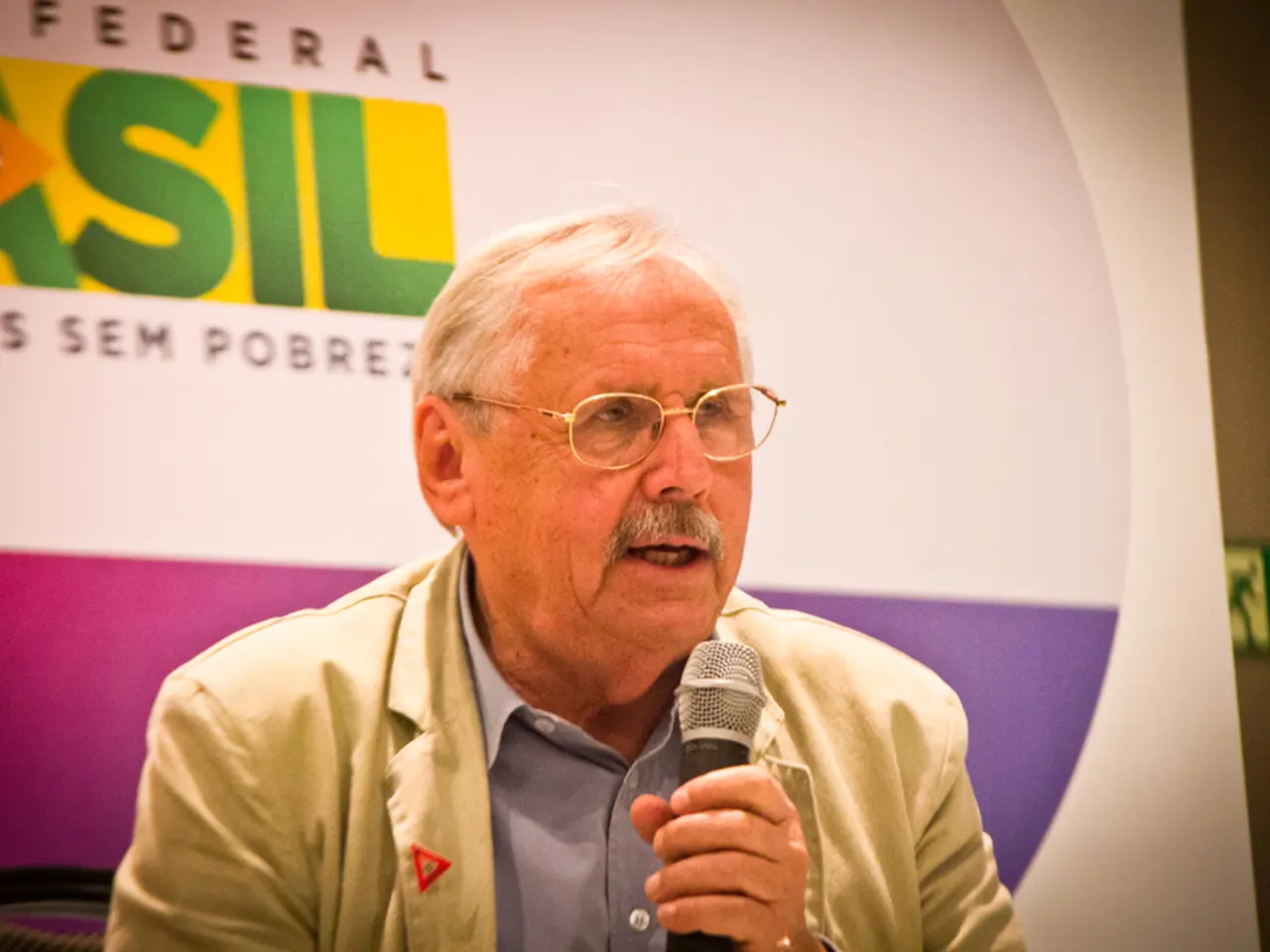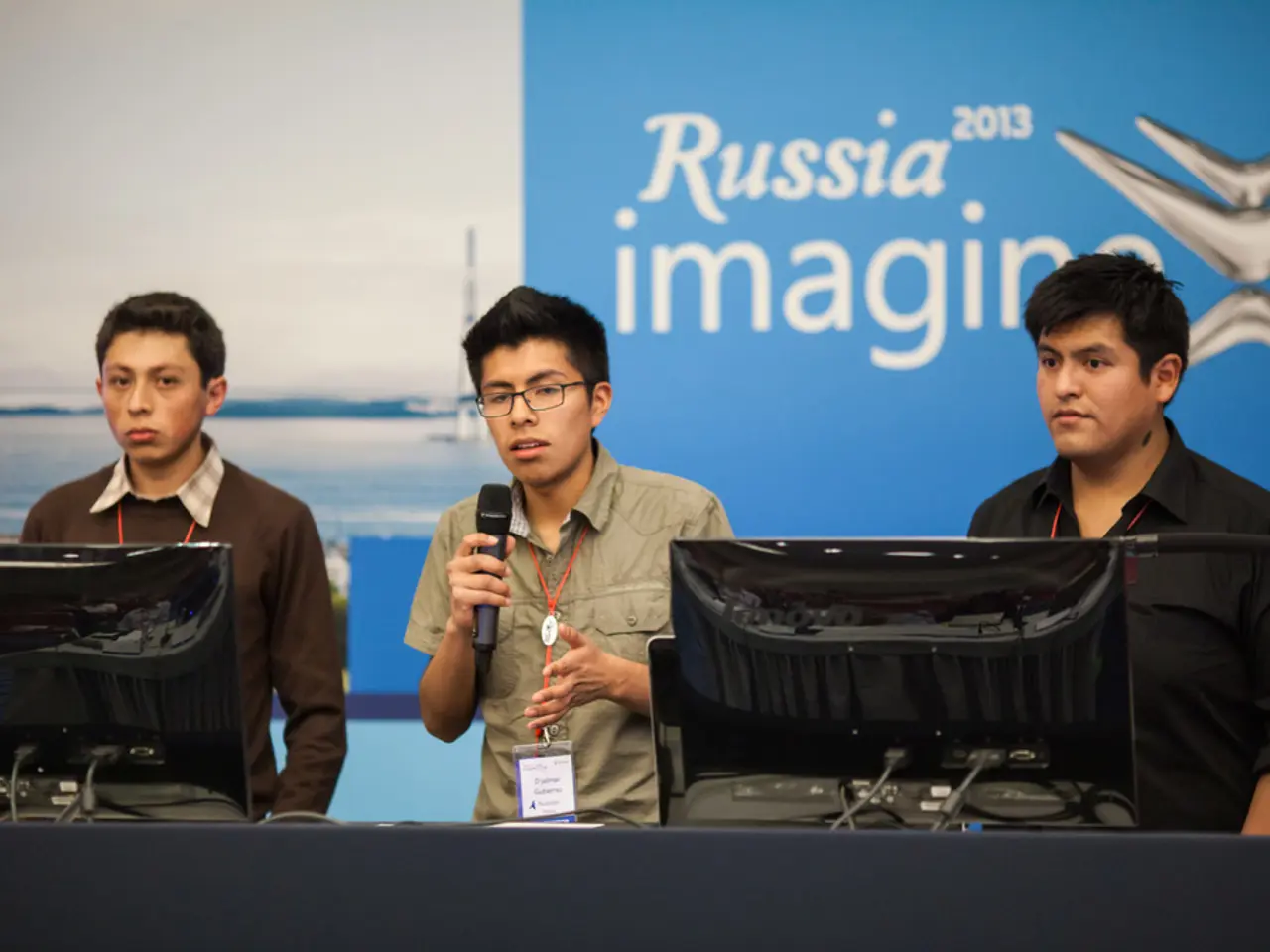France and Saudi Arabia declare commitment to sustaining efforts for a 'two-state resolution' in the ongoing Israel-Palestine conflict
In late July 2025, a high-level international conference co-chaired by France and Saudi Arabia at the United Nations in New York marked a significant step towards resolving the Israel-Palestinian conflict. The conference resulted in the "New York Declaration on the Peaceful Settlement of the Question of Palestine," a concrete, timebound roadmap for establishing an independent, sovereign Palestinian state living side by side in peace and security with Israel.
The declaration, endorsed by 125 countries speaking at the conference, reflects an unprecedented global consensus to end the conflict through a just and comprehensive peace agreement, based on relevant UN resolutions, the principle of land for peace, and the Arab Peace Initiative.
Recognition that only a political solution, specifically the two-state solution, can end violence, occupation, and terrorism while ensuring security and sovereignty for both peoples is a key point of the current status. The declaration calls for tangible, irreversible steps for peaceful settlement and regional integration, supporting mutual recognition between Israel and Palestine.
The urgent need to stop hostilities, particularly in Gaza, was emphasized. The declaration called for an immediate ceasefire, the release of hostages, and humanitarian access. Broad international support, including countries like Brazil, Egypt, Japan, Ireland, and the EU, backed the conference process and the declaration.
The Palestinian Authority was urged to undertake internal reforms to build governance capacity as a foundation for a viable Palestinian state. Recognition from religious diplomacy, such as the Holy See, emphasized that the two-state solution based on secure, internationally recognized borders is the only viable path for just and lasting peace, with special attention to Jerusalem’s unique religious and cultural status.
However, challenges remain. Political actions, such as the Israeli Knesset’s motion to extend sovereignty over parts of the West Bank and Jordan Valley, could jeopardize the two-state solution. Turkish Foreign Minister Hakan Fidan noted growing global support for the Palestinians and a Palestinian state, and Israel's increasing isolation.
An independent state of Palestine is recognized by over 145 countries. For the first time, the Arab League's 22 member nations condemned attacks committed by Hamas against civilians in southern Israel. The UN conference resulted in a seven-page "New York Declaration," setting out a plan for an independent, demilitarized Palestine, including deployment of a UN Security Council-mandated "temporary international stabilization mission" supported by the Palestinian Authority.
The mission would protect civilians, help build support for a Palestinian state and its security forces, and provide "security guarantees for Palestine and Israel." The conference sparked new pledges of recognition by France, the United Kingdom, Canada, and Malta, among others. The declaration was sent to all 193 UN members by the French and Saudi foreign ministers for endorsement by early September.
The French ambassador, Bonnafont, emphasized that the way to peace is not to deny the right of existence to Israel, and that the real way to defend the Palestinians is to give them a state, achievable only through a two-state solution. French President Emmanuel Macron was praised for raising the level of ambition for the conference, and further events during the General Assembly are planned to announce new pledges for the two-state solution.
Despite these diplomatic efforts, the war in Gaza, a crucial part of a hoped-for Palestinian state, continues with escalating violence in the West Bank. The road to peace remains long and fraught with challenges, but the recent UN conference represents a significant and broadly supported diplomatic push with concrete plans and strong international backing to reinvigorate the two-state solution.
- The "New York Declaration on the Peaceful Settlement of the Question of Palestine," endorsed by 125 countries, underscores the global political commitment to ending the Israel-Palestinian conflict through a just and comprehensive peace agreement.
- The declaration, resulting from the high-level international conference at the United Nations, emphasizes the urgent need for war-and-conflicts in the Middle East, particularly in Gaza, to cease, and for both Israel and Palestine to engage in general-news discussions to establish tangible, irreversible steps towards peaceful settlement and regional integration.






